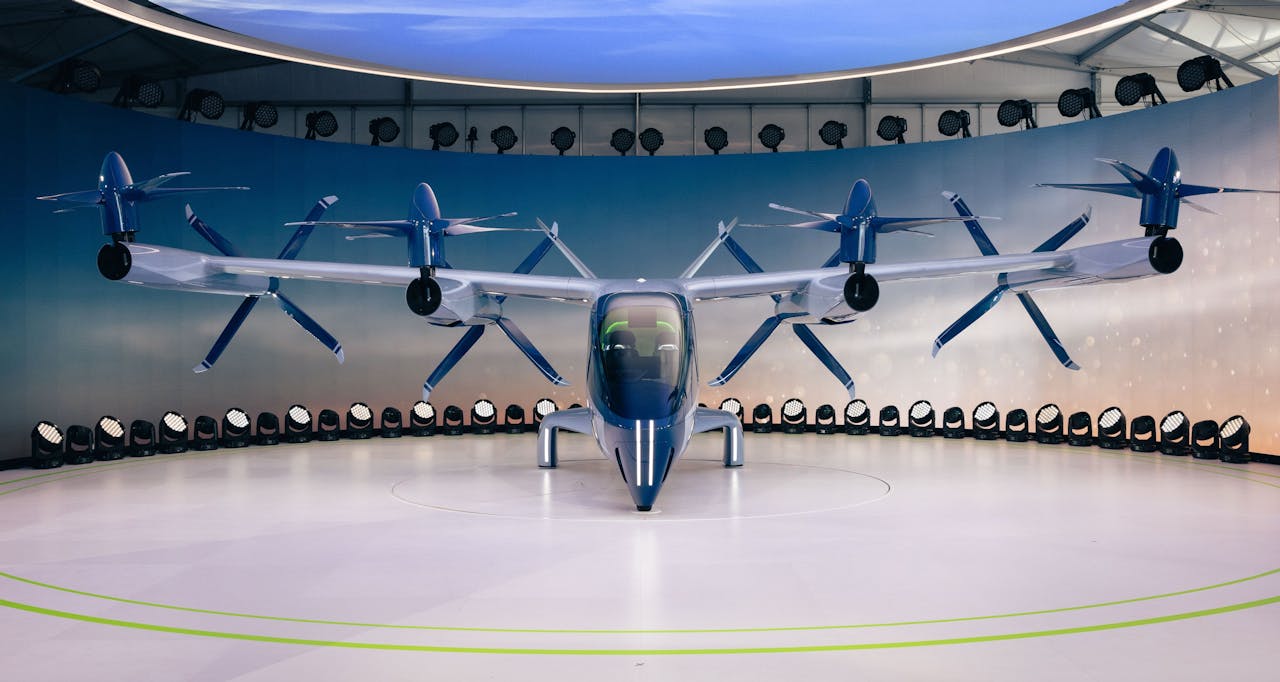Virgin Atlantic is teaming up with Joby Aviation to launch electric air taxis in the UK, marking a major step toward sustainable urban mobility. This partnership aims to offer fast, zero-emission flights connecting major airports to city centers, drastically cutting travel times compared to traditional ground transportation.
Joby’s all-electric aircraft, designed to carry a pilot and four passengers, can reach speeds of up to 200 mph and travel up to 100 miles on a single charge. These air taxis are significantly quieter than helicopters, making them well-suited for urban environments. The project will include a network of “vertiports,” dedicated landing and takeoff sites that will help integrate this new mode of transportation into existing travel infrastructure.
One of the first proposed routes would connect Heathrow Airport to Canary Wharf in just eight minutes, a fraction of the time required by car or train. Pricing for the service is expected to be competitive with premium ride-sharing options, making it an attractive alternative for business travelers and frequent flyers.
Virgin Atlantic will play a key role in promoting the service, working with regulators, and helping develop the necessary infrastructure at major airports. This initiative aligns with the airline’s broader commitment to innovation and sustainability, reinforcing its efforts to adopt greener travel solutions. However, before the service can begin, Joby must obtain type certification from aviation authorities to ensure compliance with stringent safety and design standards.
The UK government’s Future of Flight Action Plan supports the integration of electric vertical takeoff and landing (eVTOL) aircraft, with plans for commercial flights as early as 2026. As the industry moves toward sustainable air travel, this partnership reflects a larger shift in urban mobility, offering a cleaner and faster alternative to traditional transport methods. By combining cutting-edge technology with strategic collaboration, Virgin Atlantic and Joby Aviation are positioning themselves at the forefront of the next generation of short-haul travel.


